The Transat: Avoiding the Potholes
Published on May 4th, 2016
(May 4, 2016; Day 3) – The Transat bakerly is living up to its reputation as one of the toughest challenges in professional sport, with three of the 24 competitors retiring within the last 24 hours and some fierce battles elsewhere in the fleet.
Shortly after midnight, on May 4th, Edmond de Rothschild skipper Sébastien Josse, was among the leaders in the 6-strong IMOCA 60 fleet, as the boats raced around the north-west tip of Spain off Cape Finisterre, when the Frenchman reported damage to his mainsail.
In 25-30 knots of breeze, the foiling IMOCA broached during a gybe, resulting in irreparable damage to the sails batten. Josse was forced to head approximately 80nm to the Spanish port of Vigo in Galicia, where he will be joined by members of the Gitana Team.
At the time of the incident, Josse was locked in a magnificent battle at the front of the IMOCA 60 fleet with Vincent Riou on board PRB and Armel le Cleac’h’s Banque Populaire, with just 3nm between him and leader Riou.
“Everything happened very quickly, in maybe 10 seconds. I broke the battens in the mainsail, which hold the top of the sail, in a violent gybe. Despite all precautions, it is unfortunate but these things can happen,” explained Josse.
“The damage is not spectacular, but it is impossible to imagine I could continue the race. It is really disappointing – I was in the game, in contact with Armel and Vincent. The boat was very well prepared. That’s all the more frustrating as I think the hardest part of this first race was behind us.”
Just five hours earlier, at 19.00pm and 60nm off Cape Finisterre, Erwan Le Roux, the skipper of Multi50 FenêtréA Cardinal sustained substantial damage to the port float on his Multi50 trimaran.
Erwan was leading The Transat bakerly Multi50 fleet when the incident occurred, sailing downwind in a northeasterly 25-27 knots. He managed to secure his boat before alerting his shore crew.
“I had two reefs in the mainsail at the time and at first it was a big shock. I did not see what happened because I was under the cockpit cover,” explained Le Roux. “I had to intervene immediately to avoid a capsize. I went to roll the gennaker and that’s when I realised that about half of the float was missing.”
“It is super, super hard for me and also frustrating,” added the triple winner of the Transat Jacques Vabre, who is currently heading upwind on port tack, and is expected to reach port near La Coruña within 24 hours.
Elsewhere in the Multi50 fleet, Pierre Antoine aboard Olmix is the only skipper to choose the northerly route, giving him the class lead at this stage, the rest favouring a southern course in the early stages before they begin heading west.
Lalou Roucayrol on board Arkema leads that group, 3nm ahead of Gilles Lamire on French Tech Rennes St Malo.
Forty hours into the race the three-strong Ultime class are powering their way southwards past Lisbon, Portugal, with the overall lead being disputed by Thomas Coville on Sodebo and Francois Gabart on Macif, with Coville 12nm ahead at 0400am and flying along at over 30 knots of boatspeed.
“It is going well – and very quick. There is around 30 knots of wind and big seas which is causing the boat to fly off the waves,” explained Gabart. “Overnight it has been really dark – there were only three stars in the sky. We monitor the tracking to see where Thomas is. There are not many miles in it and when we go at 30 knots, it means 40 minutes is nothing.”
Further north and making their way through the Bay of Biscay, there are some classic battles within the 9-strong Class40 fleet, with the overall lead being disputed by Britain’s Phil Sharp on Imerys – who may face a penalty after apparently sailing through a restricted area – and France’s Thibaut Vauchel-Camus on Solidaires en Peloton-Arsep, with less than a mile between the two.
Fellow Class40 skipper Maxime Sorel on VandB was forced to retire yesterday morning, after sustaining damage to his bowsprit following a collision with a container ship in the northern Bay of Biscay, and he headed to the French port La Trinite sur Mer in Brittany.
Event website – Tracker – Facebook
About The Transat
Twenty-five boats set sail May 2 2016 on one of the great races in solo sailing, the 3,050-nautical mile passage across the north Atlantic from Plymouth to New York. Alongside 24 competing skippers is a one-off entry by the French racing legend Loick Peyron who is sailing Eric Tabarly’s 44ft wooden ketch Pen Duick II in the same trim as she was when Tabarly raced her to victory in The Transat (then called the OSTAR) in 1964.
The OSTAR (Observer Singlehanded Trans-Atlantic Race) was created in 1960 by a handful of pioneering sailors. The race was organised every four years by the Royal Western Yacht Club (RWYC) from 1960 through to the 2000 event, albeit with a lot of involvement from the French event organiser Pen Duick in the 90s, in order to cater for the demands of the professional campaigns that dominated the event.
After the 2000 edition, OC Sport stepped in to develop the event and acquired the rights to the professional part. OC Sport organised The Transat in 2004 and 2008, the 2012 edition was deferred at the request of IMOCA (the largest competing class).
The RWYC continues to organise a solo transatlantic race for Corinthian and non-professional sailors that is still known as the (O)STAR,. This race usually falls a year after the professional big boat race i.e. 2005, 2009, 2013, 2017. Both the amateur Yacht Club event and The Transat have the right to link to the history of the original race created in 1960, and to the rich history it has produced.
The first race was competed by just a handful of pioneering sailors including Francis Chichester and Blondie Hasler who coined the phrase: “One man, one boat, the ocean.” There has been tragedy, dramatic rescues and exceptional drama since the race began in 1960. Over time The Transat, as it is known today, has evolved and now serves the professional end of offshore sailing. But there are few modern day races that can reflect on such a long and outstanding history.
Monohull IMOCA 60 record: 12 days, 11 hours and 45 minutes set by Loick Peyron (FRA) on board Gitana in 2008. Multihull 60ft record: 8 days, 8 hours, 29 minutes set by Michel Desjoyeaux (FRA) on board Géant in 2004.
Source: The Transat


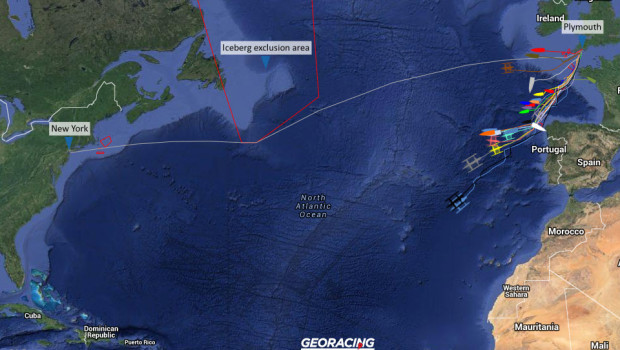

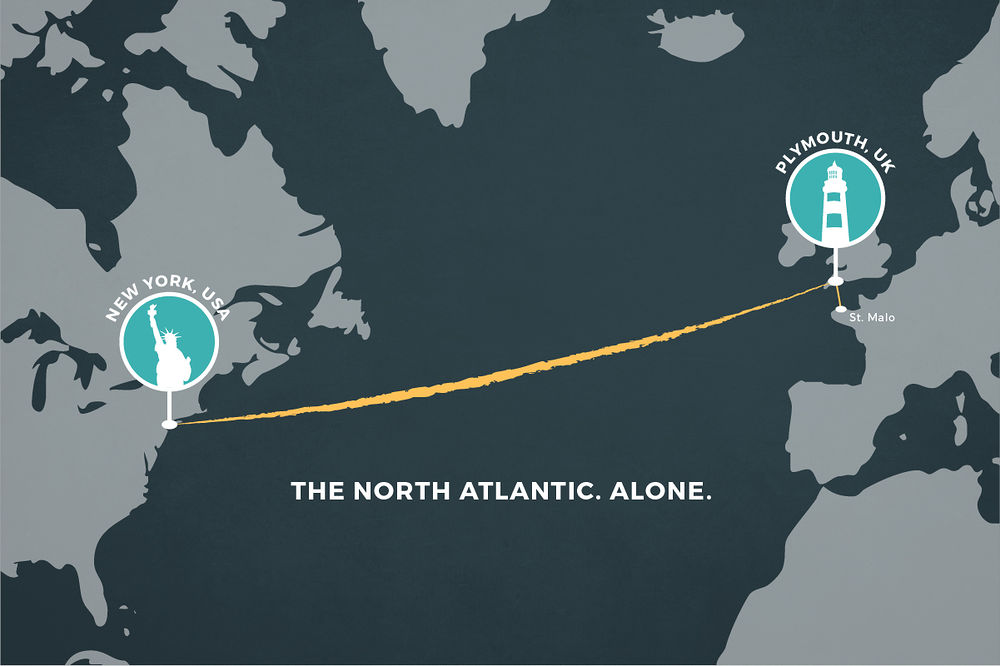

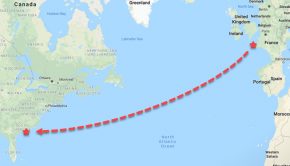
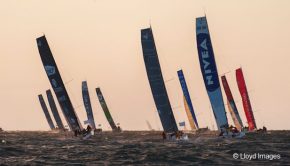
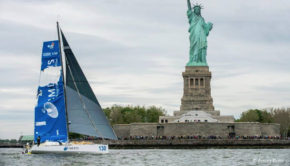
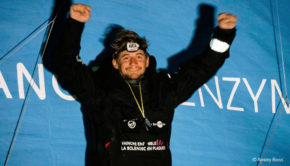
 We’ll keep your information safe.
We’ll keep your information safe.